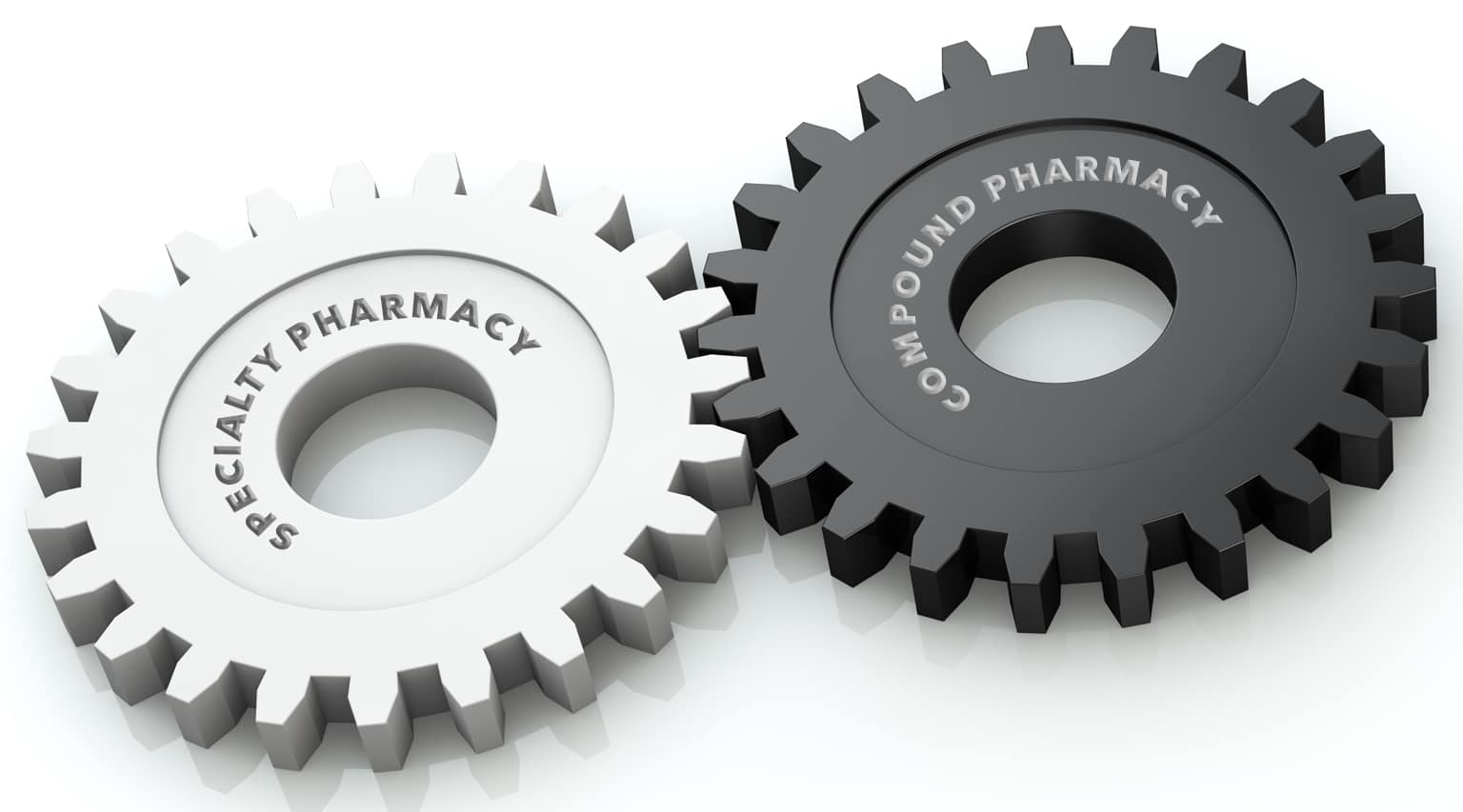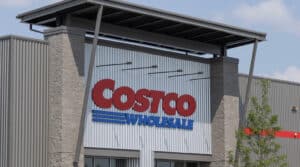From time to time we run across an article that offers more than just recent industry news. Today we stumbled across an article that we suggest be added to your company’s training syllabus.
The topic has relatively little to do with specialty pharmacy, but it is part of the branch of pharmacy that is above the regular packaged drug dispensed at retail.
The topic of which we speak is Compounding…. a close cousin to specialty poharmacy. There are many similarities between specialty drugs and compounded drugs beyond just cost. As such, all staff working in a specialty pharmacy would benefit from at least a baseline understanding of those similarities and differences to gain as broad an understanding of the segment in which they work.
What follows is a list of key questions that can answer many questions about Compounding.
- How Is a Compounding Pharmacy Different from a Regular Pharmacy?
- What Are the Different Kinds of Compounded Medicines?
- Are There Different Types of Compounding Pharmacies?
- What Governs Compounded Drugs and Compounding Pharmacies?
- Do Compounding Pharmacists Have Education in Making Custom Medicines?
- Why Would I Need to Use a Compounded Drug?
- What Types of Drugs Are Compounded Most Often?
- Why Can Compounding Drugs Be Risky?
- Do Compounded Drugs Cost More Than Manufactured Drugs?
- How Can I Find a Compounding Pharmacy Near Me?
——————————————————————————————–
What Is a Compounding Pharmacy?
When you have to go on a medication, your doctor will probably prescribe a premade one that’s FDA-approved. But sometimes, they may want you to go on a compounded medicine — one specifically made for your needs.
About 1% to 3% of prescriptions in the U.S. are for compounded drugs.
These medicines may be free of certain allergens or have a dosage that’s different than the preset dosages available. They may change the formula for an existing medicine to meet your specific needs.
The risks of compounded medicines are different so the laws that govern compounding pharmacies and compounded drugs differ from a traditional drug manufacturer or pharmacy.
How Is a Compounding Pharmacy Different from a Regular Pharmacy?
Compounding pharmacies sell custom-made medicines. Retail or hospital pharmacies (also known as community pharmacies) sell medicines made by manufacturers, but they can still offer certain compounded drugs. They just may not offer all the exact mixtures you need, especially if what you need must be made in a special setting to ensure safety. In that case, you may need to go to a compounding pharmacy, specifically.
There are about 56,000 community-based pharmacies in the U.S. Of them, about 7,500 pharmacies offer compounding services. Some estimates say that more than 32,000 pharmacies in the country offer some kind of compounding. About 40% of people who can compound drugs work in pharmacies that solely compound drugs.
What Are the Different Kinds of Compounded Medicines?
There are two kinds of medicines made at compounding pharmacies.
- Sterile compounds are drugs that are injected into your tissue or blood, or put into your eyes. They have a higher risk for contamination than traditional pharmacies.
- Non-sterile compounds come in capsules, creams, and ointments.
Compounding pharmacies have to use pure, pharmaceutical-grade ingredients when they mix up a compounded drug. These must be made at a facility that’s registered with the FDA.
There are differences in how compound and traditional drugs are labeled, too. Compounded medicine labels don’t follow a format like FDA-approved drugs do. They aren’t regulated the same, either.
Are There Different Types of Compounding Pharmacies?
There are two types of compounding pharmacies:
- 503A compounding pharmacies. They can create a medication for you based on your doctor’s prescription. The compounding can’t be done by someone under supervision of a pharmacist. They’re mostly managed by the states.
- 503B compounding pharmacies. These are outsourcing facilities, which can make a medicine based off a prescription. They can also create large amounts of medicines and sell them to medical offices. The FDA manages most of these. They have stricter labeling rules than 503A pharmacies in an effort to avoid confusion.
What Governs Compounded Drugs and Compounding Pharmacies?
Although the FDA has approved the medicines used in a compounding pharmacy, it doesn’t approve compounded drugs like they do with traditional prescription drugs, such as the dosages The FDA can’t confirm if a compounded drug is safe or effective the way that they do with manufactured drugs.
State pharmacy boards manage compounding pharmacies in the U.S. But the FDA can oversee the safety of drugs used in compounding. The Drug Enforcement Administration (DEA) can do the same for controlled substances that are put into compounded drugs. Federal and state authorities can manage the labs and equipment used, too.
Compounded drugs have to follow industry standards, and the United States Pharmacopeia (USP) Convention sets those. If they’re made in an outsourcing facility, they have to follow good manufacturing practice (CGMP) rules that cover how they’re made, processed, and packed.
In addition to licensed doctors, a licensed pharmacist, or someone supervised by one, can create a compounded drug.
They can be made in a pharmacy or outsourcing facility. The FDA and state pharmacy boards can inspect those facilities.
Do Compounding Pharmacists Have Education in Making Custom Medicines?
Pharmacists learn how to make their own versions of medicines in pharmacy school. Many states test how well they can compound before they get their license.
Many that work in compounding pharmacies have advanced training in compounding. States don’t require specific training, though. There’s no national specialty in drug compounding.
For example, pharmacists can earn a designation as a board-certified sterile compounding pharmacist (BCSCP). This means they meet standards for safety when preparing sterile compounded medications.
Why Would I Need to Use a Compounded Drug?
If the medicine you need isn’t available in a premade form from a manufacturer, your health care professional might prescribe a compounded drug.
- Pharmacists can mix a drug to:
- Customized dosages
- Add flavor (for a child or pet)
- Change the form (perhaps from pill to liquid)
- Remove allergens or non-essential ingredients
If you’re concerned about taking a compounded drug, talk to your doctor. They may be able to tell if you’re better off on a compounded drug or if a traditional prescription will benefit you. This conversation could be important because a traditional drug may be just as effective — and it’ll probably be cheaper, too.
What Types of Drugs Are Compounded Most Often?
Some drugs are more commonly prescribed in compounded form. These include medicines for:
- Pain: Like baclofen, bupivacaine, cyclobenzaprine, diclofenac, flurbiprofen, gabapentin, ketamine, and lidocaine.
- Hormone replacement: Including, estradiol, estriol, progesterone, and testosterone.
- Dermatology: Doctors often combine different drugs to treat skin-related conditions.
- Animals: It’s common for doctors to prescribe compounded medications for animals and pets.
Compounding pharmacies can be handy when there are drug shortages as well. The pharmacists can essentially make the same formulations as a manufactured drug.
Why Can Compounding Drugs Be Risky?
Some compounding pharmacies and drug preparers may make misleading statements about the safety or efficacy of compounded drugs. They may not follow standards as with traditional, FDA-approved drugs.
If the mixture is contaminated, it can injure or kill people. This happened in 2012 when the New England Compounding Center (NEC) sent out compounded a methylprednisolone acetate solution free of preservatives. It contained fungus that caused 753 infections and 63 deaths.
Be aware about purchasing something from out of state because some states don’t have rules that are as strict as others in terms of quality.
Do Compounded Drugs Cost More Than Manufactured Drugs?
There’s limited data to show price differences between compounded drugs compared to traditional, manufactured drugs.
In 2012, the average cost for an ingredient in a compounded drug was $308.49, while ingredients in non-compounded drugs were $148.75. There was a 130.3% increase in the average ingredient cost for compounded drugs from 2012 to 2013. On the flip side, costs for non-compounded drug ingredients went up 7.7% during that time.
Check with your insurance plan to see how they may cover a compounded drug. They may cover it differently compared to manufactured drug. And you may want to know what they’ll pay before you fill the prescription to avoid any unexpected costs.
by Kristen Fischer






